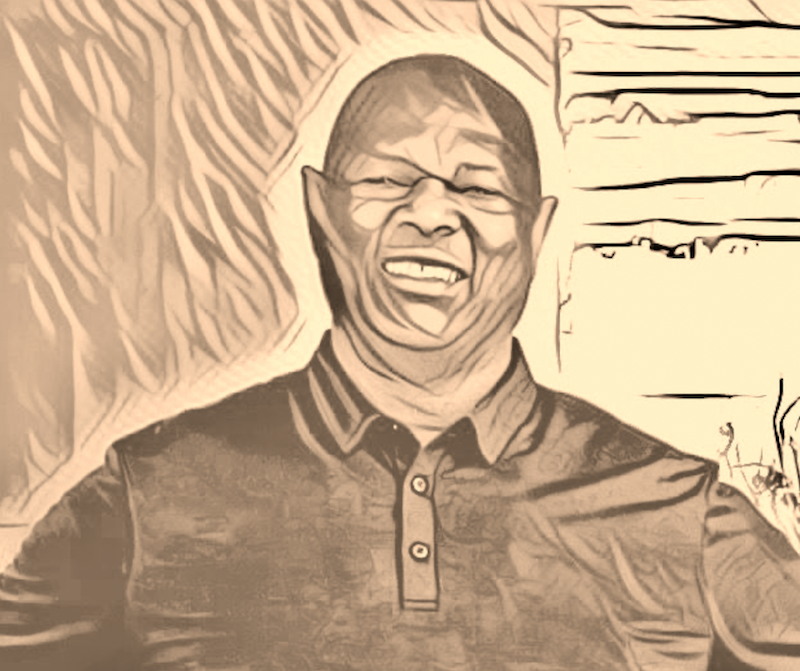How Mindfulness Can Help You Achieve Your Goals
Using ancient wisdom can help you improve your performance.

George Mumford hit rock bottom...
He was living two different lives. Despite his love for basketball, which he played in college, he was working in the financial industry. This was his first life. But despite his career in finance, he was now broke. That's because his second life, which he hid from everyone, was consumed by drugs and alcohol.
Years later, after following a new strategy, he is now a performance and mindfulness coach, working with everyone from inmates to athletes like Michael Jordan and Kobe Bryant.
He is also the author of a book titled The Mindful Athlete and is a sought-after speaker. Phil Jackson, head coach of 11 NBA Titles, credits Mumford’s strategy to transforming players and saving championships. Likewise, Mumford credits his strategy with saving his life.
Mumford’s strategy combines an ancient life philosophy and practical techniques proven to help people find a new level of performance and peace. Mumford believes you can follow your passions and achieve your goals using his methods.
In this article, I will cover how he was able to turn his life around and highlight some of the tactics he uses to help people reach their potential.
Follow Your Bliss
“The purpose of life is to discover your gift. The meaning of life is to give your gift away.” ― David Viscott
The first step is deciding what you really want. Joseph Campbell, who wrote The Hero with a Thousand Faces, calls this “following your bliss.” Your bliss is what you gravitate toward.
When Mumford was in college, he knew his bliss was basketball, but he decided to bypass his passion and pursue a more conventional path in finance. After attending a detox program and using mindfulness techniques to kick his drug habit - his new bliss was learning how to help others. He left his job in finance, and many of his co-workers who were also miserable said they wished they could do the same.
How do you find your bliss if you don't already know what it is?
Spend time asking yourself, “What do I really want?” You know your passions, but most likely you haven't paid a lot of attention to them and they get lost in the noise of life. If you dig deep enough, you will find them.
Once you figure out what you want, it's time to start working on a plan.
Do Your Homework
Find others who are top performers or who have achieved what you want to achieve. Find a coach who can work with you. Break down the basics. Knowing what to work on and knowing yourself, you will be confident that you are on the right path.
Mumford committed himself to reading every book on psychology, philosophy, metaphysics, and mindfulness while also going back to school to receive a Masters of Education in Counseling Psychology.
As you go further down this road, you need to prepare for the resistance you will face along the way.
Get Comfortable With Discomfort
"Success is 99% failure" - Soichiro Honda (founder of Honda)
As you break from your routine and do different things, you will start to feel discomfort. This is because your mind is comfortable with what's familiar. Some people are even comfortable with being miserable.
Romanticize discomfort. Consistently push yourself outside of your comfort zone so you can adapt and create new ceilings for yourself. This can be done gradually and you can train yourself to become comfortable with being uncomfortable.
Get Comfortable with Feedback
Research done by psychologist Neil Roese has concluded that while reflecting on what you could have done better might bring some initial pain, in the long run, it is effective for improvement. Visualizing your success will help your mind learn what to do better next time.
You can also work on how you feel about feedback. To use feedback as an effective tool;
- Improve your relationship with it. Change your perspective of seeing it as a negative to seeing it as a process of attaining more skills, knowledge, and experience.
- Separate yourself from your failures—self-reflection instead of self-blame.
- Make sure you also identify the areas you are doing well.
Next, we will discuss how you can improve your skills as effectively as possible.
Deliberate Practice and Concentration
“I fear not the man who has practiced 10,000 kicks once, but I fear the man who had practiced one kick 10,000 times.” - Bruce Lee
Deliberate practice is different from mindless practice, which is doing something for the sake of doing it. That won’t help you improve. Instead, you are applying focused attention with the expectation of improvement.
Mumford describes deliberate practice as doing something consciously and intentionally. For example, when Kobe Bryant was working on his 3-point shot in the off-season, he would make 1300 a day.
Kobe also gave us a good visual of what concentration looks like...
Right Effort
Find a balance between pushing too hard and not trying hard enough. Mumford uses an analogy of musical strings, not too tight and not too loose. Effort should come from the right place. It should be directed toward accomplishing something positive.
Daniel Chambliss, a professor of Sociology, researched the nature and satisfaction of athletes who pushed themselves to excellence. He interviewed and studied 120 world-class swimmers and coaches. He concluded that one of the main differences that separated top performers from others was their attitude.
“At the higher levels of competitive swimming, something like an inversion of attitude takes place. The very features of the sport that the ‘C' swimmer finds unpleasant, the top-level swimmer enjoys.
What others see as boring - swimming back and forth over a black line for two hours, say - they find peaceful, even meditative, often challenging, or therapeutic. They enjoy hard practices, look forward to difficult competitions, try to set difficult goals.
Coming into the 5:30 A.M. practices at Mission Viejo, many of the swimmers were lively, laughing, talking, enjoying themselves, perhaps appreciating the fact that most people would positively hate doing it.
It is incorrect to believe that top athletes suffer great sacrifices to achieve their goals. Often, they don’t see what they do as sacrificial at all. They like it."
So how do you sustain effort in the long run?
Faith in the Process
When you plant seeds in a garden, at first you can’t see them growing but you know they are. When you first start working out, you won't see the weight coming off but it will.
Faith is believing that by doing all your homework and putting in the right type of effort, you will find success. It may only be in hindsight that you realize the benefits.
Journalist and filmmaker Sebastian Junger had a lifelong hobby of fitness that included competitive running and boxing. At 58, an artery ruptured in his stomach and he started bleeding internally.
After losing 90% of his blood, he survived. Doctors told him if he wasn't in such good shape at the time of his illness, he would have died. He realized his lifelong dedication to fitness was for that very moment.
In Mumford's own life, he worked in any role he could that aligned with his interests and passions. He was working in the prison system, helping prisoners practice mindfulness when Phil Jackson approached him to work with the Bulls, bringing him back to basketball. Doors will open you didn't even know where there.
Trust in yourself and your plan. What you are doing will pay off. When things aren't going how you thought they would - remember you are doing everything within your control.
Mindfulness
“Mindfulness means paying attention in a particular way, on purpose, in the present moment, nonjudgmentally, as if your life depended on it.” - Jon Kabat-Zinn
Mindfulness isn’t about detaching yourself from reality. It's not an either/or philosophy. It's about balance. If you are on a hike to the top of a mountain, you are aware of your final destination, but you are also completely focused on the twists and turns at the moment - being present on the journey every step of the way.
References:
The Mindful Athlete George Mumford
The Mundanity of Excellence Daniel Chambliss
The Functional Theory of Counterfactual Thinking Kai Epstude and Neal J Roese
Sebastian Junger Story
